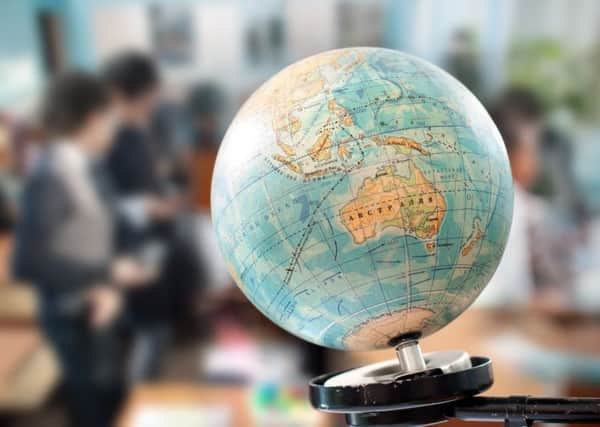Roger Crofts: Geography undervalued in understanding of world


Geography is one of these subjects. Articulating orally and in writing one’s understanding of the world is one sure way of increasing literacy. Collecting, analysing and using information about the world increases students’ numeracy, and gives them a better grounding as citizens and future employees.
But geography is much more than this. Surely we should aspire to our children and grandchildren having a greater understanding of their world: what is happening around them, analysing the causes and assessing solutions?
Advertisement
Hide AdAdvertisement
Hide AdThrough primary and secondary education, we should be teaching children to have a better understanding of our world’s complexities and interactions. For example, everyone should be taught about the causes and consequences of flooding, and what can be done to reduce the effects and moderate the causes.
Equally, all students should understand what is the best use of the land and sea for providing food, for giving a home for nature and to understanding the effects of climate change.
In these, and many other topics, geography provides students with an ability to discuss issues impacting on their lives. So why is it that knowledge-based learning is out of fashion and subjects are taught by non-specialists? Why should history graduates teach geography and vice versa in secondary 1 to 3 as part of the Broad General Education, when allowing them to use their knowledge and enthusiasm for their subject would contribute more to pupils’ learning experience and to acquiring key skills? And why are students being restricted in the choice of subjects at National 4 and 5?
There is a built-in assumption that English and Maths are vital, plus a science and a foreign language, so that history, geography and other social subjects are left out. But geography covers the sciences, both natural and social, and it teaches literacy and numeracy skills. But, it is undervalued in subject choice.
We now have an unsystematic approach to subject choice at the discretion of the education authority or the head teacher. Who benefits? Certainly, not the students or geography.
Let’s ensure our children are learning key skills for their future lives and careers taught by those with enthusiasm and knowledge.
Geography is a key subject for all future citizens, as it opens the whole world to pupils, improves their global view and provides a context for learning numeracy and literacy. Let’s make the most of it, as geography is the subject of our time.
Roger Crofts is chair of the Royal Scottish Geographical Society and patron of the Scottish Association of Geography Teachers.